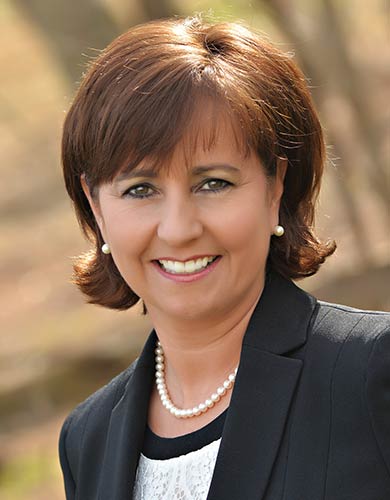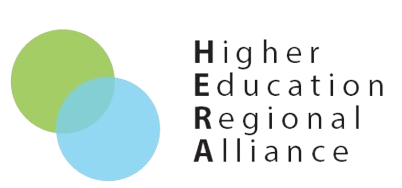
HERA Chair Dr. Cindy Gnadinger, President of Carroll University, shares her thoughts on how Southeastern Wisconsin’s higher education community is collaborating to better serve students and the region.
When you look at the national higher education landscape, how unique is HERA?
The sense of collaboration and collegiality among our region’s higher education community really stands out – it isn’t like this everywhere across the country. The fact that this group started six years ago and we keep moving, evolving, and getting stronger every year, is a testament to the commitment that our leaders have to do all we can to benefit our region and communities.
If someone is wondering if college is worth the investment, what would you tell them?
There have been countless studies done on this exact topic, and it is indisputable: Going to college is an investment that pays off. If you have a bachelor’s degree, over your lifetime, you will make 75 percent more money than someone with only a high school diploma.
College is available and attainable for anyone who wants to go, with the financial aid and other support institutions and the government make available to our students. College also provides the best possible environment for students to learn the collaborative skills that are critical to succeeding in the workplace – and in life. Students engage daily with thousands of other people who think, look and sound differently than they do. Getting a job and launching your career is critical. But it’s also about developing the whole person, so they will be work-ready. They’ll be able to work in teams. They’ll be able to collaborate, and to solve these big problems that we’re leaving for the next generation.
We all know college isn’t for everyone. There are good options to make a living without going to college. But for some who have certain goals and career aspirations, college is the only avenue.
These are discussions we have all the time in higher ed. We know the value of a degree. We can, however, do a better job of reinforcing that message with corporate partners and elected officials.
There’s also a major opportunity here: We could collaborate with industry on additional flexible programming. In this scenario, businesses contribute funding, facilities, equipment and expertise to guide the creation of courses that teach relevant skills, and higher education institutions deliver these courses in ways that fit the scheduling needs of both traditional students and people who are already in the work force. Everyone wins: Higher education has new ways to bring in students, learners have easy access to learn new skills and advance their careers, and companies that invest have direct access to qualified workers.
Some cities do that really well with their large employers to ensure that they have a robust and skilled workforce. It just has not had a lot of traction here in Wisconsin, unfortunately. As we invite more and more large industries here to Wisconsin, we are going to have to be creative to come up with solutions.
What should people know about the role HERA and its institutions play in working with industry to develop the next generation of our region’s workforce?
For anyone who might think higher ed is stuck in their ways and slow to change, I see it very differently. We can turn on a dime and be nimble. We saw that during the pandemic. I can tell you from my own institution and my HERA peers, we’re meeting regularly and creating new programs to meet emerging needs.
As one example, Artificial Intelligence is changing the way that we do our work and will continue to evolve. Higher ed is ready. We are leading the way in making sure that our graduates are proficient and part of the positive change for these companies as they implement AI.
What keeps you up at night?
We’re facing a lot of headwinds in higher ed. It’s the demographic changes heading our way. It’s the challenges to our economic model. It’s the national narrative that what we do may be less relevant – which I strongly disagree with, but we must acknowledge that this sentiment exists.
Society is changing at a rapid pace, and we can feel that. I often call this our Darwinian moment in higher education. You need to be a fit, nimble and healthy institution to survive. My colleagues and I have been preparing for this for a long time, and we’ll be here to weather the storms and emerge stronger.
And what makes you optimistic about the future?
I feel so fortunate to work on a college campus, where every day I encounter young people who are energized, intelligent, and so enthusiastic. They are the reason for my optimism and my hope for the future. I get to see them tackle real-world problems every day, as they encounter them in their classes, extracurricular activities and internships. When I speak with our students and feel their passion and energy about making a better world, I know we’re going to be in good hands.
